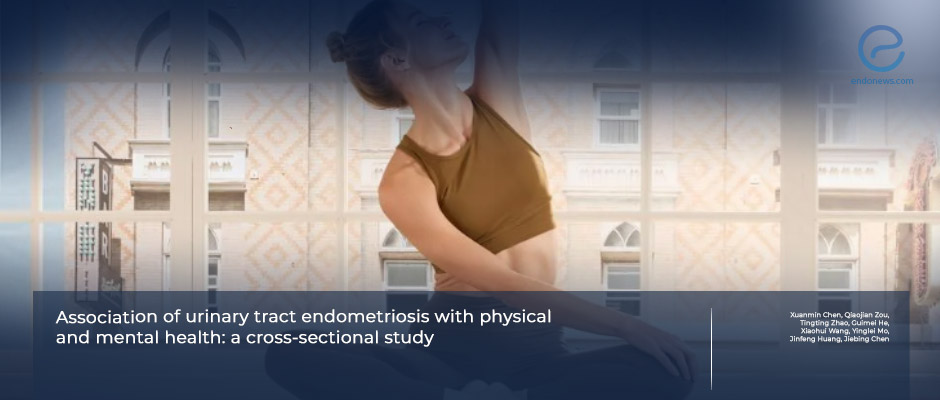Quality of Life in Patients with Urinary Tract Endometriosis
Apr 25, 2025
Urinary Tract Endometriosis Impairs Physical Health: A Call for Individualized Patient Care
Key Points
Highlights:
- Personalized care with pain and mental health support is crucial for Urinary Tract Endometriosis (UTE) patients.
- Physical health is more impaired in UTE than in other endometriosis types.
Importance:
- UTE poses unique physical and psychological challenges.
- To improve the quality of life, not domains should be addressed.
What’s done here?
- This cross-sectional study explores the health-related quality of life in 92 women with urinary tract endometriosis (UTE), compared to 234 with deep infiltrating endometriosis (DIE).
- All patients underwent laparoscopic surgery with confirmed pathology.
- Data on personal health and quality of life were collected through structured questionnaires before surgery:
- SF-12 survey measured physical and mental (MCS) health.
Key results:
- A total of 326 female participants who met the eligibility criteria were included (92 with UTE, 234 had DIE).
- UTE patients exhibited higher levels of creatinine and a greater incidence of urinary abnormalities.
- Painkiller use predicted worse physical health.
- The presence of urologic abnormalities prior to surgery and a history of multiple miscarriages negatively impacted the mental health of UTE patients.
- UTE patients often needed more extensive surgery due to urinary tract involvement.
Limitations:
• Self-reported data may introduce bias, single center design and inclusion only surgical patients limits broader applicability.
Lay Summary
Urinary tract endometriosis (UTE) is a specific form of endometriosis that affects the urinary system, most commonly the bladder or urethra. It can cause symptoms such as bladder irritation, urinary urgency, painful urination (dysuria), blood in the urine (hematuria), and loin pain near the kidneys. Pain, a hallmark of endometriosis, often disrupts daily activities, work, and overall quality of life.
Beyond physical symptoms, women with UTE may also experience significant emotional distress related to concerns about fertility and surgical outcomes, leading to increased anxiety and depression.
Despite its impact, the quality of life (QoL) in UTE patients has been poorly studied.
In a cross-sectional study published in BMC Women's Health, Chen et al. investigated the physical and mental health of women with UTE compared to those with deep infiltrating endometriosis (DIE). Conducted at the First Affiliated Hospital of Sun Yat-sen University, the study found that women with UTE had significantly lower physical health scores, as measured by the Physical Component Summary (PCS) of the SF-12 survey, compared to women with DIE. However, mental health scores (MCS) were similar between the two groups.
The findings highlight the need for individualized, multidisciplinary care that addresses both the physical and emotional aspects of UTE. Effective pain management and psychological support are essential to improve overall well-being. As the authors concluded, "Individualized and targeted care should be added to clinical practice to prevent negative outcomes for UTE patients."
Research Source: https://pubmed.ncbi.nlm.nih.gov/40022151
endometriosis urinary tract endometriosis health-related quality of life physical health mental health SF-12

